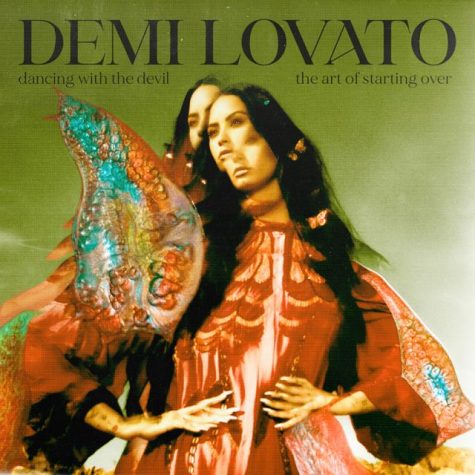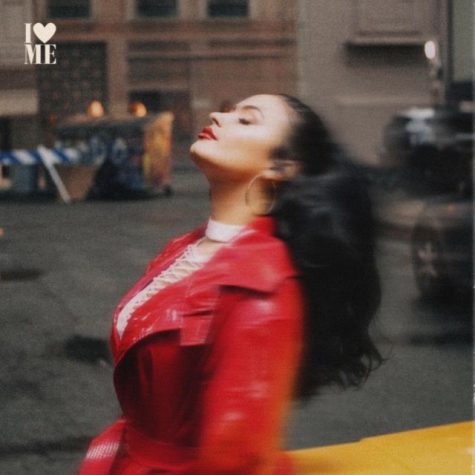[Eds Note: This article has been published in partnership with Spinnaker Radio to feature LGBTQ+ music artists and celebrate Pride Month.]
Twenty-nine-year-old musician and actor Demi Lovato is an influential artist not only because of their music but also for being an avid mental health advocate.
Having been diagnosed with bipolar disorder in 2011, Demi has struggled with mental issues including depression, bulimia, and addiction.
In the first episode of their podcast 4d with Demi Lovato, Demi came out as non-binary.
“I feel that this best represents the fluidity I feel in my gender expression and allows me to feel most authentic and true to the person I both know I am and still am discovering,” Demi said in the podcast.
A documentary series on YouTube, Demi Lovato: Dancing with the Devil, mainly focuses on the traumatic event of Demi’s overdose in 2018. Cast members tell many details of Demi’s life in the series, including the addiction problems their father Patrick struggled with. In the film, it is revealed that Demi’s mother suffered abuse from Patrick as well.

After six years of sobriety, Demi relapsed six months prior to the overdose. Between the relapse and the overdose, they released the song Sober. The song is an apologetic poem about struggling to stay away from drugs when feeling lonely.
Demi is now a partner of Be Vocal: Speak Up for Mental Health, an organization that works to motivate people with mental disorders to seek help rather than hide their problems.
On a happier note, one of Demi’s top hits is the song, I Love Me. The music video for which was nominated for, “Video for Good” and “Best Visual Effects,” at the MTV Video Music Awards in 2020.
The song is a self-love anthem. Demi speaks to themself in the lyrics, saying that they are beautiful and should not compare themselves to others.
A mallet-like electronic instrument opens the song with a chord progression in Gb major. Even as Demi questions why they have a negative self-image, the major key gives the song an uplifting energy.
Demi’s main vocal line sings over the chords for four bars before a snare comes in, hitting the strong beats. A short line of dialog saying, “every single day,” is panned to the left to emphasize the line, “I’m guilty about everything that I eat.” This adds to the texture of the verse before the intensity builds with background (BG) vocals and a new percussive pattern in the pre-chorus.

Listeners are somewhat teased in the chorus. The percussion transitions back and forth from sounding full of a floor tom, wet reverb, and low frequencies to a crisp set of snaps, dry bass, and a snare. Along with the percussive changes, the vocal profile switches from being a textured, ambient vocal stack of simultaneous melody tracks, to a single melody line with minimal decay.
A reiteration of the first verse is embellished in the second verse with vocal harmonies, vocal ad libs, and a syncopated rhythm in the bass drum.
Throughout the following pre-chorus and chorus, Demi belts on an added vocal track, giving a new sound to the melodies heard previously in the song.
Chants and strong vocals fulfill the bridge. After the melody of the bridge gradually escalates in power, all instruments suddenly cut out for two beats. The build-up to the sudden caesura creates anticipation for the climax of the song in the final chorus.
Demi belts melody embellishments, peaking at an Ab5, over a choir of vocals and ambient percussion.
All instruments are cut out for harmonious, acapella vocals to end I Love Me.
Demi Lovato’s music can be found on Spotify, YouTube, and Apple Music.
__
For more information or news tips, or if you see an error in this story or have any compliments or concerns, contact editor@unfspinnaker.com.















